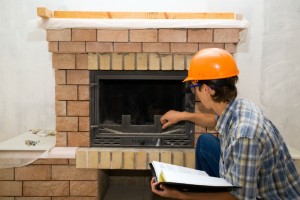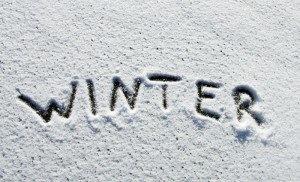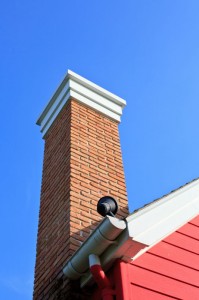by Billy Sweet | Apr 12, 2015 | Installation
If you are installing a wood stove, fireplace or any type of insert you have already made an investment in beautifying your home as well as heating it in a way that uses less energy and saves you money. When you begin the planning phase of your installation process it is necessary to contact a professional fireplace company to make sure your appliance is installed and maintained correctly.

Professional Installation of Stoves, Fireplaces And Inserts
A fireplace installation is a major renovation project, and not one for the weekend do-it-yourself homeowner. Building code inspectors will determine if the size, height and construction of your heating appliance are in accordance with building regulations in your area in order to approve your renovation. Having a professional on your side will alleviate any costly modifications should your new stove or fireplace not have the right proportions.
Avoiding Modifications And Repairs
If you are planning on tackling your own fireplace or wood stove installation project consider this: you are already spending a sizeable investment on the installation of a beautiful heating appliance – don’t you want to avoid spending unnecessary money on modifications? Fireplace installations are big projects, and if not installed correctly could wind up costing a lot more in costly repairs and updates. A fireplace or wood stove is more than just a beautiful addition to your home, they are also functioning heating appliances that when not installed correctly can cause serious damage such as:
- Chimney damage
- Masonry damage
- Overheating inside your firebox
- Carbon monoxide exposure
Maintenance
An added benefit of having a professional install your fireplace or wood-burning stove is that you will have an experienced technician on-hand should you have any questions. After your heating appliance is installed, you will have a team of professionals available to help keep your fireplace clean and swept, as well as inspected for any damage. Having a professional chimney and fireplace company like Billy Sweet Chimney Sweeps in the Boston, North Shore and Portland areas will help you install your appliance to not only make sure it is operating correctly from the first fire, but also to make sure your appliance is swept and inspected regularly.
The bottom line is, fireplace and woodstove installation projects are expensive. Spend that money wisely by employing the help of qualified and licensed professionals. When homeowners attempt to complete these types of projects on their own, the results are unattractive at best, and unsafe at worst. Hiring a professional will give you the peace of mind that the project will be completed beautifully and safely.
We love to see beautiful fireplaces, woodstoves and fireplace inserts installed in homes because they provide a relaxing and comforting aesthetic while giving homeowners the power to heat their homes in alternative ways. We are passionate about helping you use wood-burning appliances to heat your home safely, and the first step is having professionals help you plan and install your heating appliance. Contact the Billy Sweet Chimney Sweep team for a consultation and installation recommendations today.
by Billy Sweet | Jan 6, 2015 | Winter Chimney
Around this time of year, the chimney often goes unnoticed. With everyone headed inside the escape the chilly winter weather, the chimney is left in the cold to fend for itself. While the robust brick structure may seem able to withstand any weather, masonry chimneys can actually suffer irreparable damage during the winter months. Fortunately, there are some measures that can be taken now to prevent more damage in the future.

Masonry chimneys are chimneys constructed using masonry materials, which include brick, mortar, concrete and stone. All of these materials, aside from stone, have a very porous nature, which means they easily absorb any water that touches them. Similar in function to a sponge, the bricks and other materials can soak up moisture until they reach complete saturations. While the absorption of water does little damage by itself, the trouble begins when the temperature drops below freezing. In sub-freezing temperatures, water begins a freeze and thaw cycle in which it continuously expands and contracts as it freezes and melts, respectively. When the water inside the masonry materials starts this cycle, the materials also experience that same shrinking and swelling movement. Over time, this motion degrades the strength of the materials. The first signs of a weakened chimney include cracked mortar or missing bricks, but eventually the entire structure could fall. To prevent this, a chimney specialist can patch the mortar by tuckpointing and apply a certain permeable sealant to the outside of the chimney to prevent water from entering the structure.
The other winter problem that occurs with the chimney also revolves around water damage. The warmth of the chimney can melt snow and ice at the top of the chimney, permitting water to leak inside. If the flue lining is made of metal, the water can rust out the lining, leading to cracks and holes. This break in the lining exposes the combustibles in the house to the heat of the fire, and it allows the toxic fumes to leak back into the home. Potential hazards of this include house fires and carbon monoxide poisoning. In addition, the water can rust out the damper, which may prevent proper ventilation of the fumes. Water damage may encroach further, as well, which would be evident by the presence of water stains on the walls and ceiling surrounding the fireplace. A chimney specialist can stop this damage from happening by repairing or replacing the chimney crown, if one is present, and installing a proper chimney cap to stop water from entering the chimney.
Prevention is key to avoiding these costly damages, so take the extra time to ask your chimney sweep or inspector about protecting your masonry chimney. For a professional consultation in the Boston or Portland areas, contact Billy Sweet Chimney Sweep.
by Billy Sweet | Oct 15, 2014 | Masonry Chimney
The autumn weather has arrived in full force. The chilly wind has colorful leaves falling from the trees and has everyone digging up their cozy jackets. This time of year also has homeowners thinking about how to heat their homes. In the frigid New England winters, this is a big concern. Many homes utilize fireplaces for some or even all of their heating needs. With a fireplace, however, comes some maintenance responsibilities. Fireplaces with masonry chimneys, in particular, are prone to specific types of issues, so you need to keep an eye out for the safety of your home and family.

A major issue that masonry chimneys face is water damage. Many homeowners never even consider that their strong, robust chimney could ever succumb to damage from a little water. Chimneys are built to live outside, after all. Unfortunately though, water can cause serious problems. The materials used to build a masonry chimney like brick, mortar, and concrete are all very porous, meaning they readily absorb water. While stones do not absorb water, the mortar holding them together does. The trouble with a masonry chimney filled with water occurs during the freeze and thaw cycles of winter. The water expands as it freezes, which means the bricks, the mortar, and the concrete all expand as well. Over time, this expansion causes damage.
You may see water damage in several different forms. The first clue is cracked or missing mortar. The constant movement of the materials during freezing weather loosens the bonds of the mortar. Thus, the mortar wiggles its way out from between the bricks, appearing as a crack or as a decent sized hole. A mason can usually fix isolated mortar cracks or holes using a process called tuckpointing.
Another sign of water damage is a cracked chimney crown. This concrete slab on top of your chimney acts as an umbrella to keep water from entering the flue. If it has cracks from water damage, water is entering your chimney, which leads to a whole new set of problems. Ask your mason if he can patch the cracks. Otherwise, the chimney crown may need to be completely replaced.
The most devastating sign of water damage to the chimney is partial or total collapse of the structure. This most likely occurs after years of exposure to water and freezing temperatures, but a poorly built chimney could suffer from collapse in less time. Chimneys are very heavy, meaning a collapse could be a danger to anyone on the ground and to the structure of your home. Any signs of a collapsing chimney must be addressed by a mason right away.
Luckily, you can take some steps to prevent water damage, like sealing your chimney and adding a chimney crown. Ask your mason what can be done to protect your chimney. If you live in the Boston or North Shore area or around Portland, Maine, contact Billy Sweet Chimney Sweep for a professional consultation. The experts at Billy Sweet Chimney Sweep can help make your chimney last for many more years.



